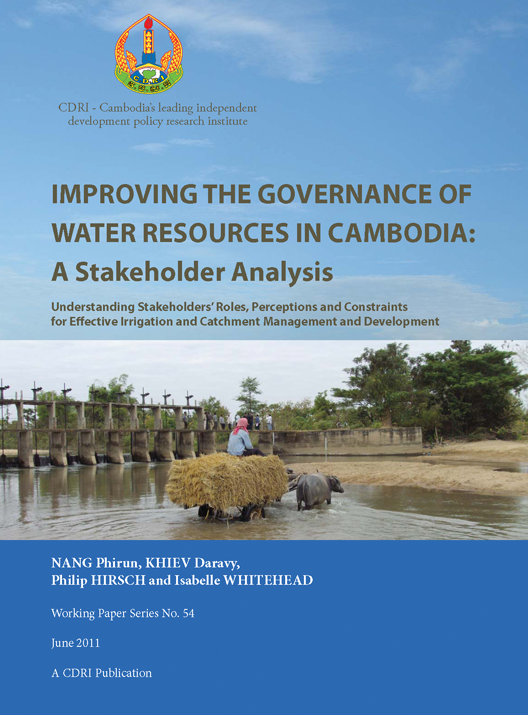
Improving the Governance of Water Resources in Cambodia: A Stakeholder Analysis
Irrigation development and management of water resources present serious governance challenges for many stakeholders in Cambodia. Farmers, government agencies, development organisations and the private sector all have a role to play, yet their roles and responsibilities are not always well defined. Contemporary ideas on water governance indicat...
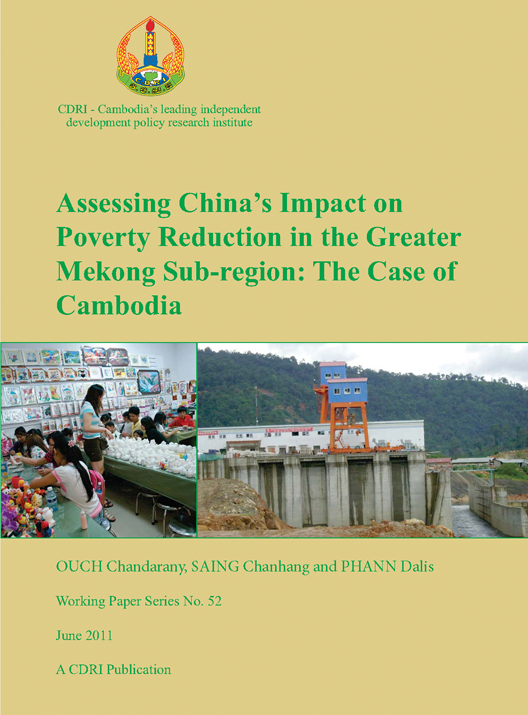
Assessing China’s Impact on Poverty Reduction in the Greater Mekong Subregion: The Case of Cambodia
The deepening trade relation between Cambodia and China has brought about significant expansion of bilateral trade between the two nations; however, Cambodia’s negative trade balance continues to widen at an average annual growth rate of 34 percent. The study uses the framework developed by Jenkins and Edwards (2004) to examine China-Cambodia t...
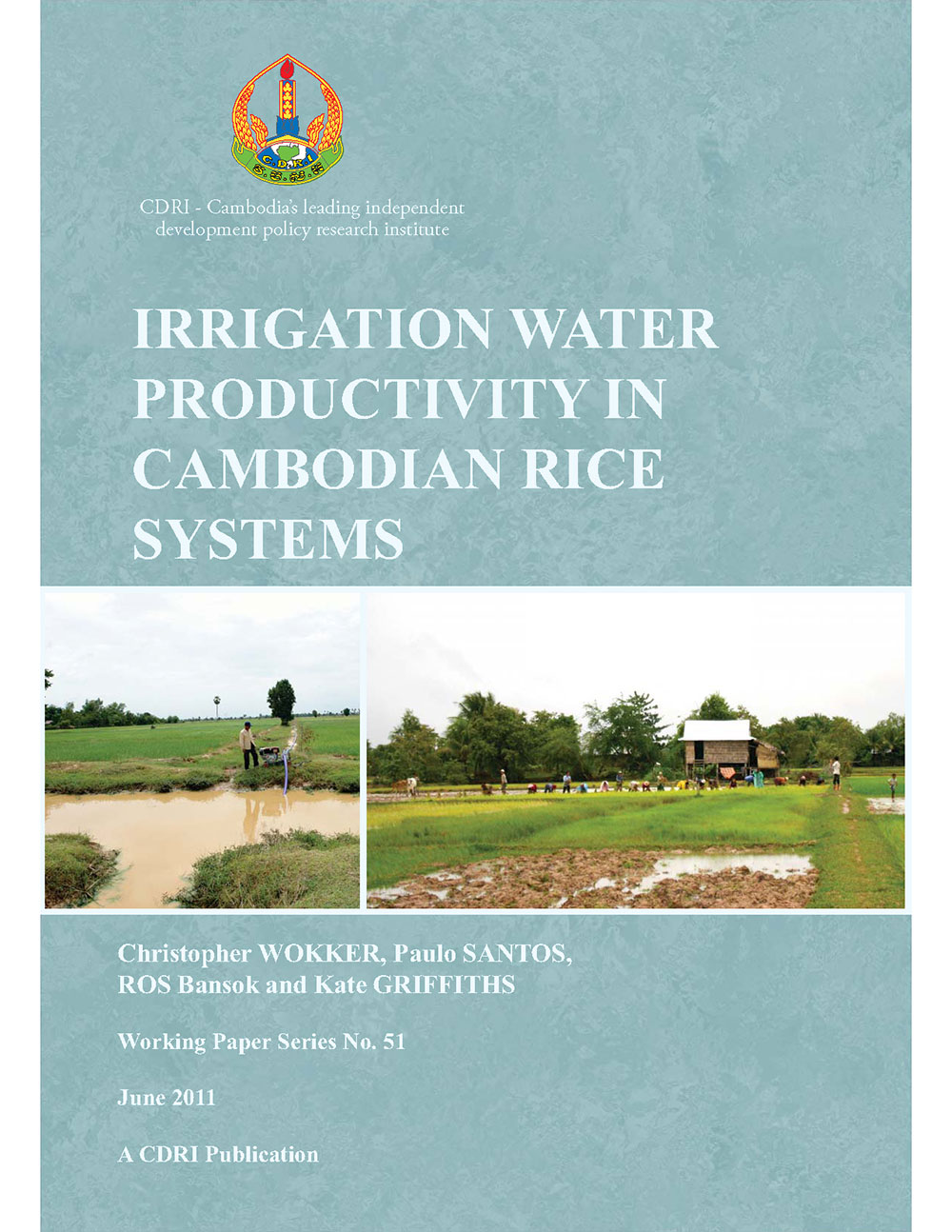
Irrigation Water Productivity in Cambodian Rice Systems
Cambodia’s economy is based largely on the agricultural sector which contributes 33 percent of the national GDP and employs more than 67 percent of the national labour force. Rice production is central to this sector: not only do the majority of Cambodia’s farmers depend directly and indirectly on the success of the rice crop each year, but bei...

Fiscal Decentralisation in Cambodia: A Review of Progress and Challenges
To achieve democratic development, Cambodia’s next step towards fiscal decentralisation will focus on both institutional and service delivery reform at district level so as to strengthen the capacity of the sub-national administration and better link it to sectoral service delivery. To move forwards, fiscal decentralisation needs to be comprehe...
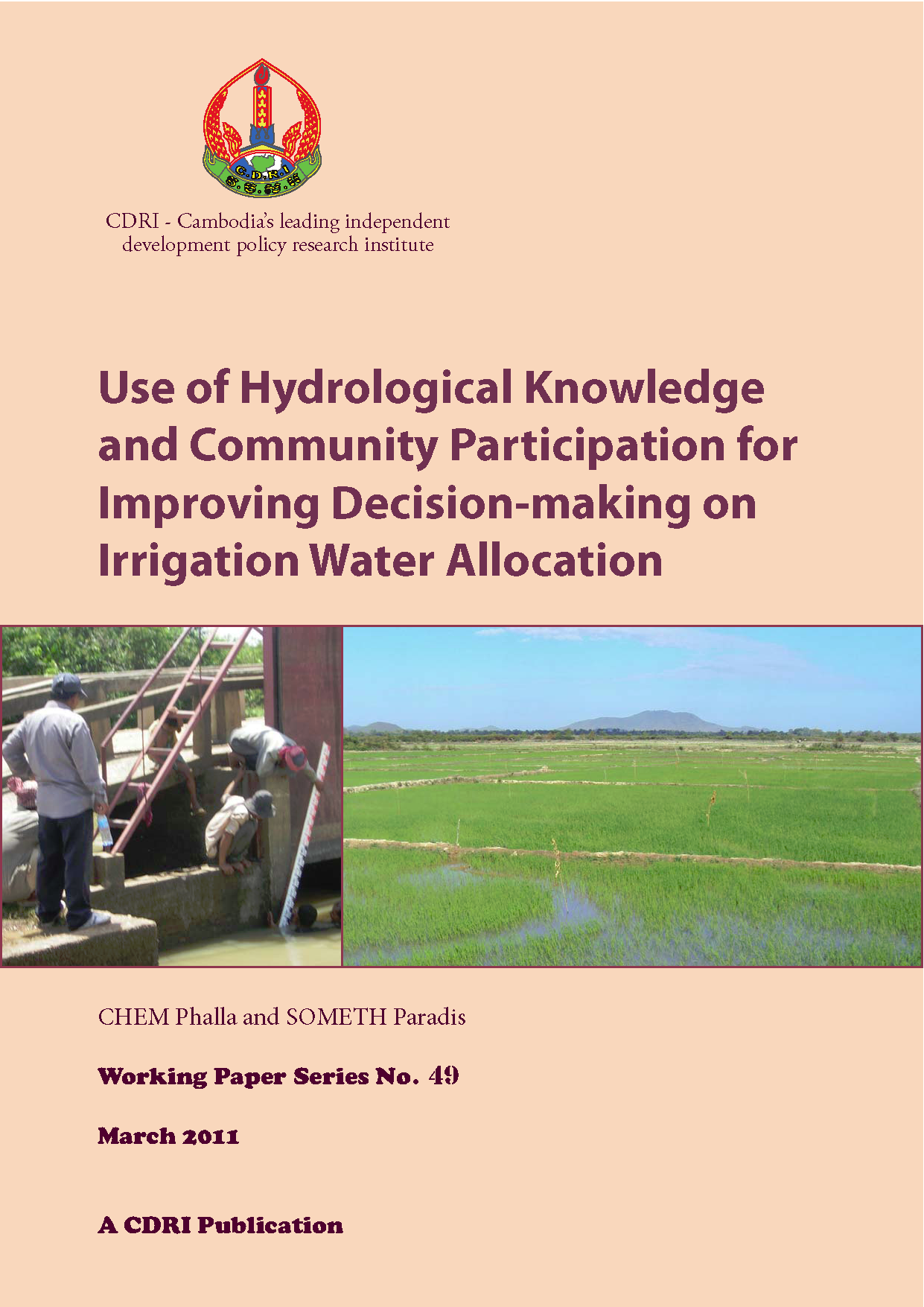
Use of Hydrological Knowledge and Community Participation for Improving Decision-making on Irrigation Water Allocation
A growing population requires more food. Many farmers who grow dry season rice lack irrigation, not only because of lack of water in the catchment, but also because of the lack of irrigation infrastructure and a proper water allocation mechanism. This paper reports on research conducted in Stung Chrey Bak catchment in Kompong Chhnang province t...
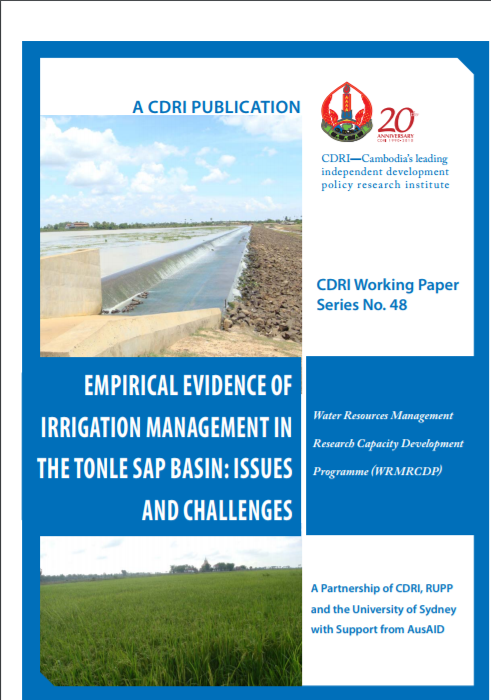
Empirical Evidence of Irrigation Management in the Tonle Sap Basin: Issues and Challenges
Over the last few decades, state agencies, development organisations and private sector agencies have focused efforts not only on developing physical irrigation infrastructure but also on establishing effective management mechanisms. The empirical data compiled in this paper identifies the everyday issues of irrigation water governance at local lev...
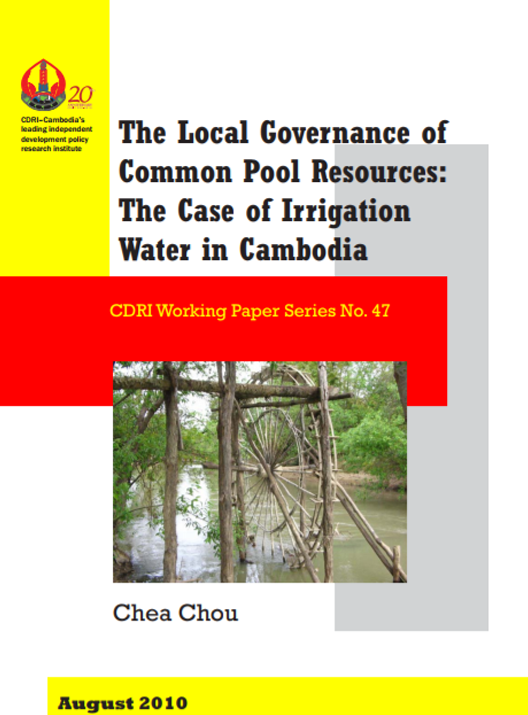
The Local Governance of Common Pool Resources: The Case of Irrigation Water in Cambodia
The study seeks to identify the factors that enable or constrain the good governance of common-pool resources in Cambodia using irrigation water as the case for analysis. It found that the decentralised natural resource management approach was not functioning, whereas local implementation of community-based natural resource management to manage irr...
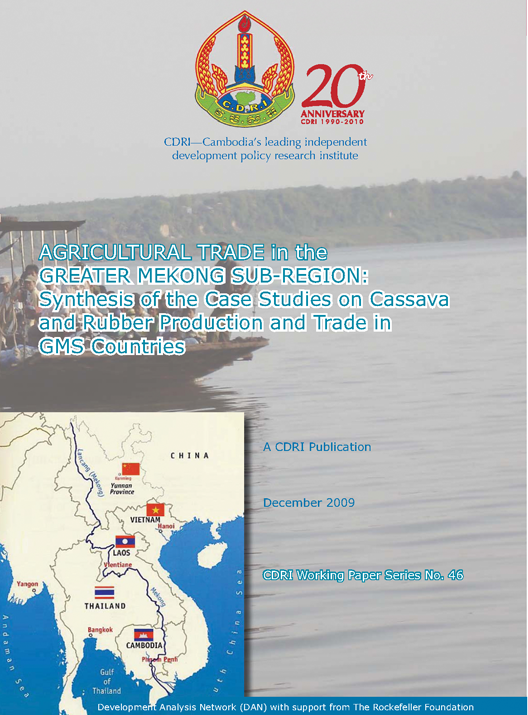
Agricultural Trade in the Greater Mekong Sub-Region: Synthesis of the Case Studies on Cassava and Rubber Production and Trade in GMS Countries
Agriculture creates a sense of commonality and connection among the countries of the Greater Mekong Subregion (GMS); however, its contribution to regional economies varies, being huge in Laos and Cambodia and much smaller in China, Thailand, and Vietnam. This paper summarises and synthesises the five country case studies, undertaken by the GMS Deve...
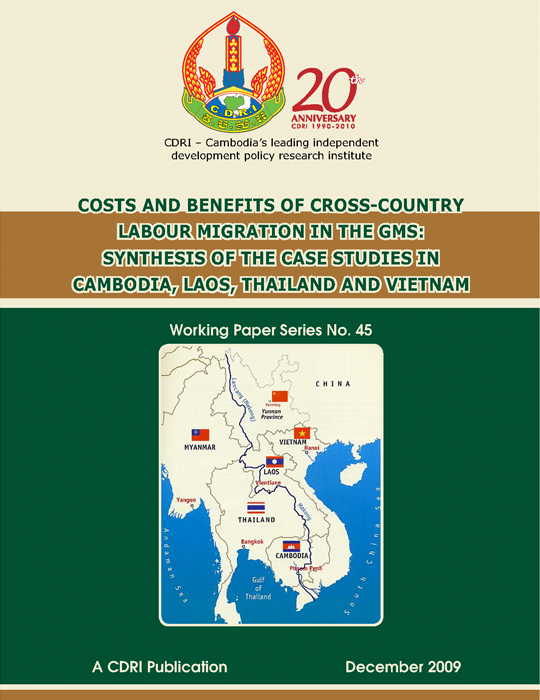
Economic Costs and Benefits of Cross-country Labour Migration in the GMS: Synthesis of the Case Studies in Thailand, Cambodia, Laos and Vietnam
There is growing interest in promoting cooperation in the Greater Mekong Subregion (GMS), comprising Cambodia, Laos, Myanmar, Thailand, Vietnam and Yunnan province of China, where socioeconomic development varies widely between countries. Job creation in the worse-off countries does not keep pace with increases in the labour force. Due to the highe...
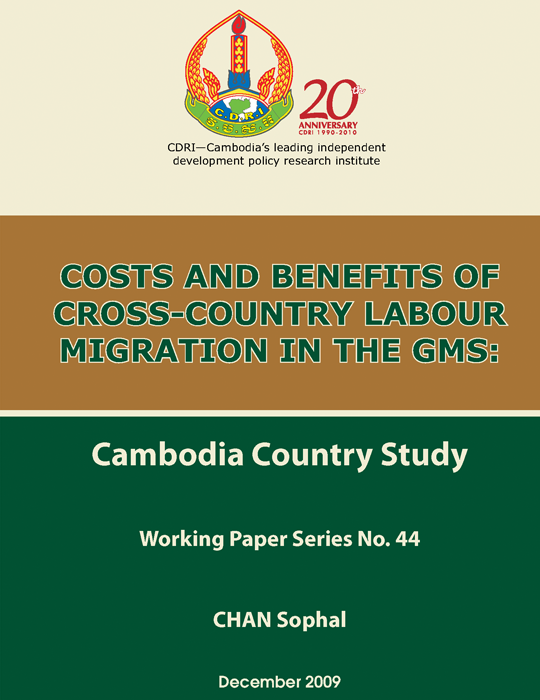
Costs and Benefits of Cross-border Labour Migration in the GMS: Cambodia Country Study
Most Cambodian migrants travel by illegal or informal routes, mainly to Thailand, as the legal option is costly and inconvenient. Government agencies face a huge challenge in managing this growing labour migration. Since the creation of productive jobs does not keep pace with the number of new entrants to the labour force, the pressure to emigrate...
